
Over the past ten years or so, there has been a resurgence of crime and mystery dramas. Specifically, of European crime and mystery dramas. With streaming services constantly shelling out new content, it’s no wonder that a significant chunk of their budget goes into TV series of this darker genre. The viewers love it, too.
‘The Killing’ (2007), otherwise known by its original title, ‘Forbrydelsen’, was a massive hit on the international market, earning a BAFTA award in the process. It even led to a Netflix remake that was surprisingly almost just as good, featuring the brilliant Mireille Enos and Joel Kinnaman.
With highly rated productions such as ‘Bordertown’ (2016), ‘Deadwind’ (2018), ‘The Chalet’ (2017), ‘La Mante’ (2017), and ‘The Forest’ (2017), among many others, it’s clear that European creators and viewers have a preference for the thrill of a murder enigma. We are unrepented suckers for a good mystery—the disappearance of an innocent girl; a body washed up on the shore of a small town somewhere in the cold countryside of Finland; a police detective with a dirty secret; broken families; and plenty of red herrings to keep us distracted for weeks on end.
Most of these shows follow a well-established formula. The pacing is slow, and great care is given to the characters, both main and secondary. Each of the story’s participants are three-dimensional and as close to real humans as they will ever get. We understand addiction, misery, anguish, loneliness, frustration, and depression. And we all want to get to the truth, one way or another.
The journey isn’t easy. We must peel away at the layers. Perhaps the girl that went missing isn’t all that innocent herself. Or there’s a greater conspiracy at play, with the victims getting tangled into these webs of nefarious origin. Either way, by the end of the first season, we’re all feeling cold, our hearts pumping as the story picks up its pace and dives into a head-spinning finale. The killer is revealed. The motive is often shocking. Unpleasant realities come forth. Hearts are broken. Relationships are shattered. But we are all the wiser and justice was delivered. The mystery was unravelled… and then we move on to another series, because we quickly need another fix.
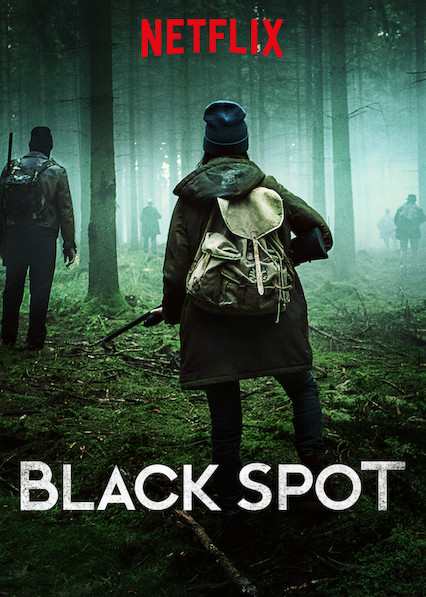 ©NETFLIX
©NETFLIX
This is where ‘Black Spot’ (2017) stands out from the rest of its predominantly Scandinavian and French counterparts. It follows a familiar pattern, but it boldly steps outside the conventions for its hybrid genre. It’s relatively slow paced, and it involves a missing girl, yes. However, it also brings in some supernatural elements that others might have trouble weaving into such a story. It’s dark and moody, with plenty of gloriously wooded establishing shots, as well as intimate close-ups and brutally honest views of the people whose lives it’s documenting.
Streaming platforms like Netflix operate in bulk these days. Out of ten series they produce and distribute, three might be decent. Out of the three, one will be exceptional and often highly anticipated before it is even released—as was the case with ‘Altered Carbon’ (2018), ‘The Crown’ (2016), or ‘House of Cards’ (2013).
Unlike the aforementioned giants, ‘Black Spot’, produced by France Télévisions and Ego Productions, sort of… slipped through. It was a hidden gem of sorts, but once it caught its viewers’ attention, there was no turning back. The show just works on so many levels, it has become a crown jewel of Netflix, a French/Belgian Koh-i-Noor whose third season we’re all breathlessly awaiting.
Created by Mathieu Missoffe of ‘Criminal: France’ (2019) and ‘Profilage’ (2009), ‘Black Spot’ follows an uncanny blend of characters who join forces more or less willingly in order to solve strange murders in a small and isolated French town. Villefranche sits on the edge of a mysterious forest in an area known as a ‘zone blanche’ (also the show’s French title), which means the cell phone reception is particularly poor in these parts.
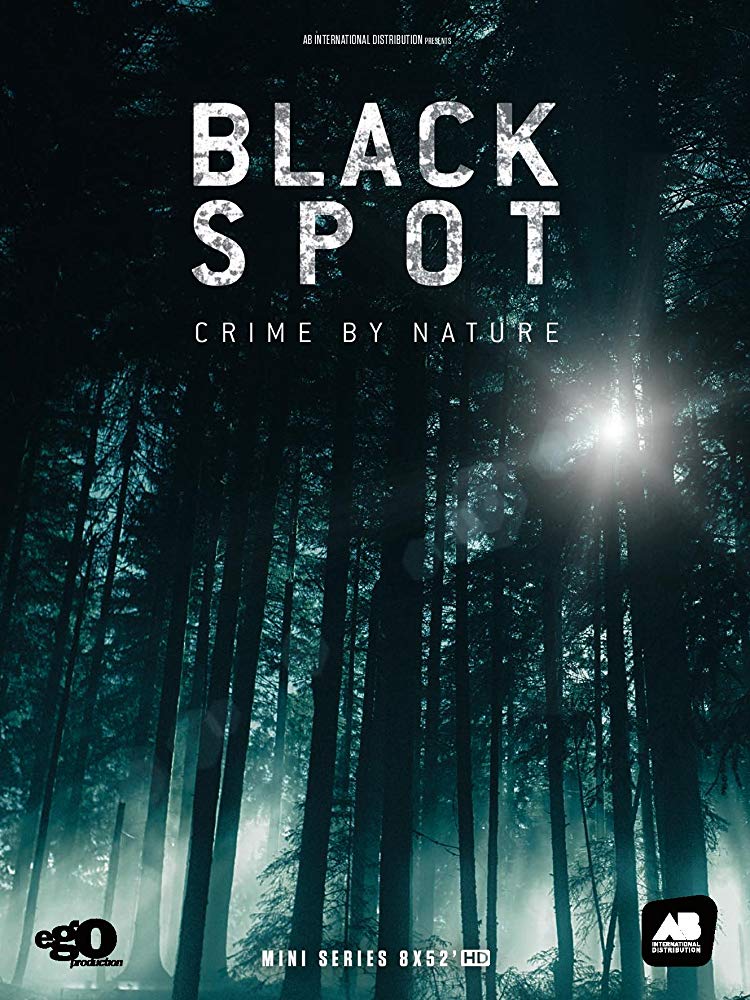 ©NETFLIX
©NETFLIX
The town’s sheriff, Laurène Weiss, was once the victim of a crime herself, now dealing with a piling of bodies and disappearances—some of which are startlingly connected to her own harrowing experience. The incoming inspector, Franck Siriani, is a quirky fellow with a sturdy share of phobias and unresolved issues, desperate to solve these crimes so he can earn his way back into the big city from where he was banished. The sheriff’s deputy, Nounours, is a cuddly bear-type gay man who ends up falling for a possible suspect in another murder. The mayor, Bertrand Steiner, whose daughter, Marion, has been missing for a year, is torn between his corrupt father, his frustrated wife, and his affair with the sheriff Weiss. Clearly, there’s a lot to unpack here, and we’re only four characters in.
Suliane Brahim does a stellar interpretation of sheriff Weiss, a single mother still struggling with memories of her abduction and near-death experience at the hands of a forest creature of sorts—every day is an effort to keep reality and nightmares apart from each other, in a bid to retain her sanity while she tries to bring justice to the victims of a recent surge in violent murder. ‘Black Spot’ is the much-awaited breakthrough an actress of her calibre and potential needed, and we can certainly see why she shines so brightly.
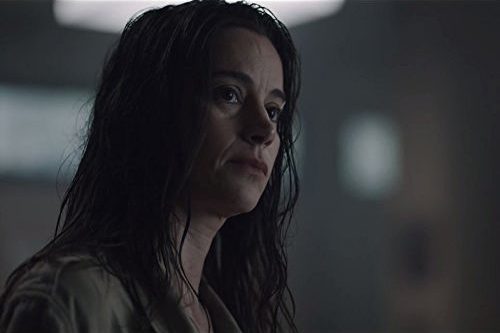 ©NETFLIX
©NETFLIX
Sheriff Weiss is a tormented woman who loses sleep over the dead bodies that keep popping up in Villefranche. Her daughter, Cora, is the typical difficult teenager with an extra emotional baggage of being Marion’s best friend and eager to find out what happened to her—by whatever means possible, even if it gets her involved with a group of extremist environmental activists hell-bent on ruining the Steiners’ toxic business ventures.
Bertrand Steiner wants to be a good mayor to his constituents, but his father’s immoral practices, lack of ethics, and army of goons persist as a stain on his record. He wants to be a good husband to his grieving wife, as well, but his feelings for sheriff Weiss keep bringing him back to her bed. When his daughter’s body is finally found, Bertrand loses control and begins a slightly predictable downward spiralling trajectory—at the end of which he’ll be forced to make a choice: pull the trigger or retain his humanity.
Franck Siriani is an interesting addition, a bright yellow on a palette of darker blues and greens. He stands out, despite his polite demeanour. His fear of germs borders on the ridicule. His desire to restore his record, however, reaches into the realms of the obsessive. Inspector Siriani wants to do the right thing, too, and that means solving the many murders that have been plaguing Villefranche. But he also wants to take down the biggest beast of all—the Steiners, whom he sees as his ticket back to civilization and an area with good cell reception.
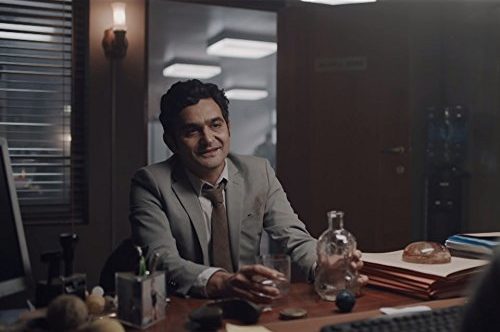 ©NETFLIX
©NETFLIX
Walking through Villefranche for the first season alone, we’ll come across many interesting characters. Some are terrible and depraved, harbouring dark secrets and murderous intentions. Others are nice and well-meaning, with routines they deeply care for and families they work hard to support. A few are cynical, perhaps even a little jaded. A handful seem to know a lot more about this place and its history than they let on. Put together, however, they’re woven into a fascinating canvas—a town that has been around since the Roman soldiers were trying to conquer the Celtic Gauls, a town that tries to modernize but cannot fully abandon its occult past.
You see, what really sets ‘Black Spot’ apart is the fabled existence of Cernunnos, the Horned One, a deity once worshipped by the Gauls. While very little is known about him due to the absence of written Gaulish literature, Cernunnos is thought to have been a god of animals and nature. In ‘Black Spot’, he first emerges as a silhouette, a faint idea, the origin of sheriff Weiss’s nightmares.
As the story progresses, as murders are solved and as we’re brought closer to the grim truth behind Marion Steiner’s disappearance, Cernunnos’s role becomes clearer as sheriff Weiss’s possible abductor, definite stalker, and eventual saviour. This modern-day godlike creature is also a killer and the origin point of an old coming-of-age ritual that got sheriff Weiss kidnapped as a teenager, in the first place. He’s no longer just a legend. Cernunnos becomes a twisted, unpalatable reality, and our crime-solving heroes are gradually forced to accept his influence, while also trying to explain it in a way that makes sense.
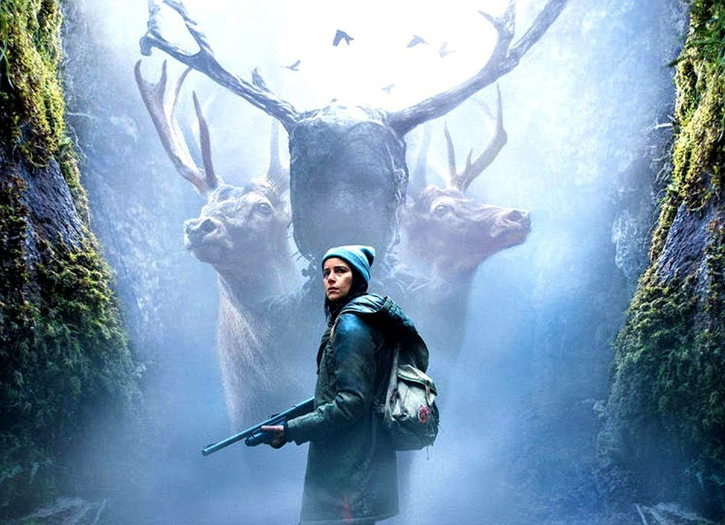 ©NETFLIX
©NETFLIX
It’s not easy to blend a supernatural element into a drama that is partially based on the police procedural. It’s not easy to make it verisimilar enough for the viewer not to scoff and switch to another series. And it’s certainly not easy to gradually bring it from the bottom layers of the overarching stories all the way to the top, by the time the first season is over. This achievement is indisputable as we open with sheriff Weiss’s apparent resurrection in the second season. Our minds are blown, and we cannot look away.
We want to learn more about Cernunnos, about the role he plays in Villefranche’s mythology. Who else knows about him? Who else has crossed paths with this mysterious creature? Who else survived the encounter? Who has the answers we need to make sense of all this? Season two mercilessly teases, shocking with some of its answers, but it doesn’t let go. Its hold is strong.
It is truly a wonderful thing to witness—a show’s ability to grip its viewers so tightly, that they’re left on the edge of their seats, counting the days until the next season. For this alone, I’m pleased to give ‘Black Spot’ all the praise it deserves.
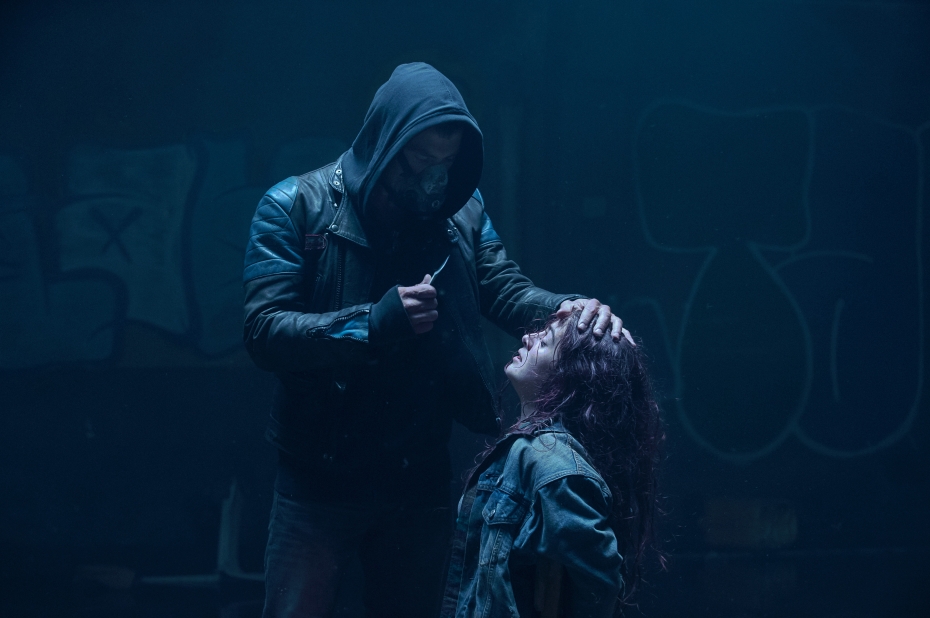 ©NETFLIX
©NETFLIX
Of course, the production would be nothing without its splendid cinematography. Christophe Nuyens, best known for his work on ‘Riviera’ (2017), ‘Versailles’ (2018), and ‘A Discovery of Witches’ (2018), brings his skill to new levels in eight episodes of ‘Black Spot’. It even earned him a Jury Award from Camerimage and the Best Cinematography Award from the Luchon International Film Festival. Brecht Goyvaerts of ‘De Dag’ (2018) fame handles another eight episodes with a steady, in-depth view of Villefranche and its secrets. Bruno Degrave and Matias Boucard complete the team with four and three episodes, respectively.
From ‘Au Service de la France’ (2015), production designer Eddy Penot and art director Laurent Khalife manage to create a Villefranche so real, we feel the shivers down our spines with every panoramic view of the forest and every close-up of its streets. The look and feel of ‘Black Spot’ are exactly the way it’s meant to be: dark, gritty, unapologetically real, with a whiff of supernatural which we are compelled to follow, even after the show’s writers try to drag us back to reality.
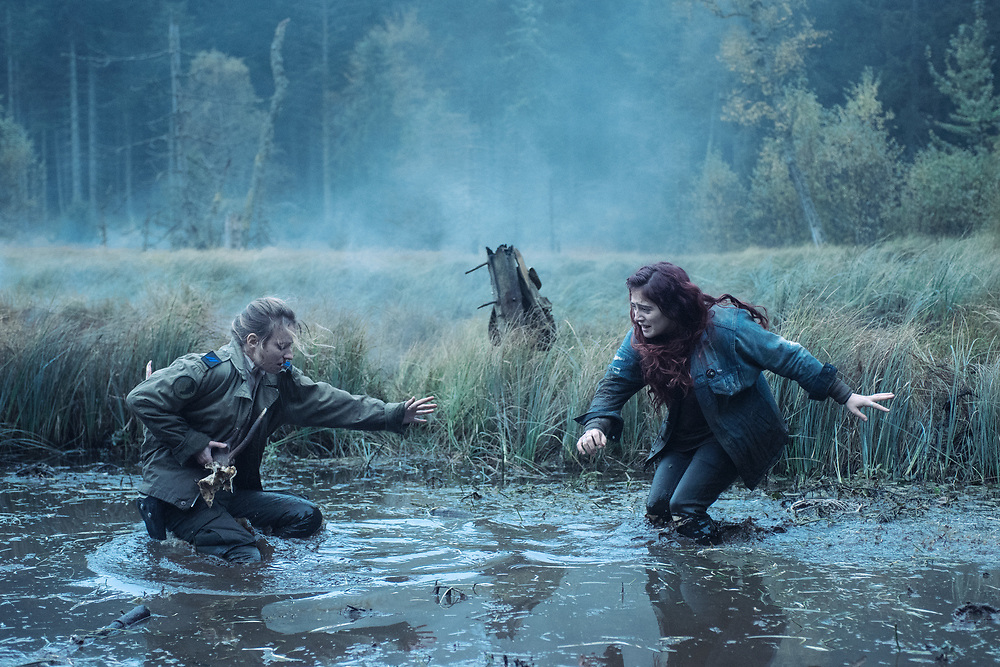 ©JEAN-PHILIPPE BALTEL/EGO PRODUCTIONS/FTV
©JEAN-PHILIPPE BALTEL/EGO PRODUCTIONS/FTV
Among the non-English speaking shows currently streaming on Netflix, ‘Black Spot’ takes a serious lead. Its weird factor is cranked up to a healthy eleven, well above ‘Osmosis’ (2019) or ‘Parfum’ (2018), taking it away from the strictly procedural or definitively dramatic creations of Scandinavian origins mentioned earlier. Stuffed with secrets, murder, whodunits and an apparently immortal horned god who makes a habit of starving and gutting his victims, one might have a hard time finding a reason not to like ‘Black Spot’. Especially when it turns out the supernatural isn’t all that… supernatural, per se.
Going back to the original premise of how Netflix absolutely nailed it with this show, the answer lies in the abundance of twists and turns, and in how we are all virtually played with right until the conclusion of the second season, where we learn that nothing is what it seems. Not even Cernunnos.
There is more mystery awaiting. More to the origin story. More connections to follow. And, of course, there are also more questions, which will hopefully be answered with the upcoming third season. At this point, one can only expect more of that dark and weird fun that Mathieu Missoffe is so obviously good at.
Jules R. Simion
Jules is a writer, screenwriter, and lover of all things cinematic. She has spent most of her adult life crafting stories and watching films, both feature-length and shorts. Jules enjoys peeling away at the layers of each production, from screenplay to post-production, in order to reveal what truly makes the story work.
An Interview with Anna Drubich
Anna Drubich is a Russian-born composer of both concert and film music, and has studied across…
A Conversation with Adam Janota Bzowski
Adam Janota Bzowski is a London-based composer and sound designer who has been working in film and…
Interview: Rebekka Karijord on the Process of Scoring Songs of Earth
Songs of Earth is Margreth Olin’s critically acclaimed nature documentary which is both an intimate…
Don't miss out
Cinematic stories delivered straight to your inbox.
Ridiculously Effective PR & Marketing
Wolkh is a full-service creative agency specialising in PR, Marketing and Branding for Film, TV, Interactive Entertainment and Performing Arts.


